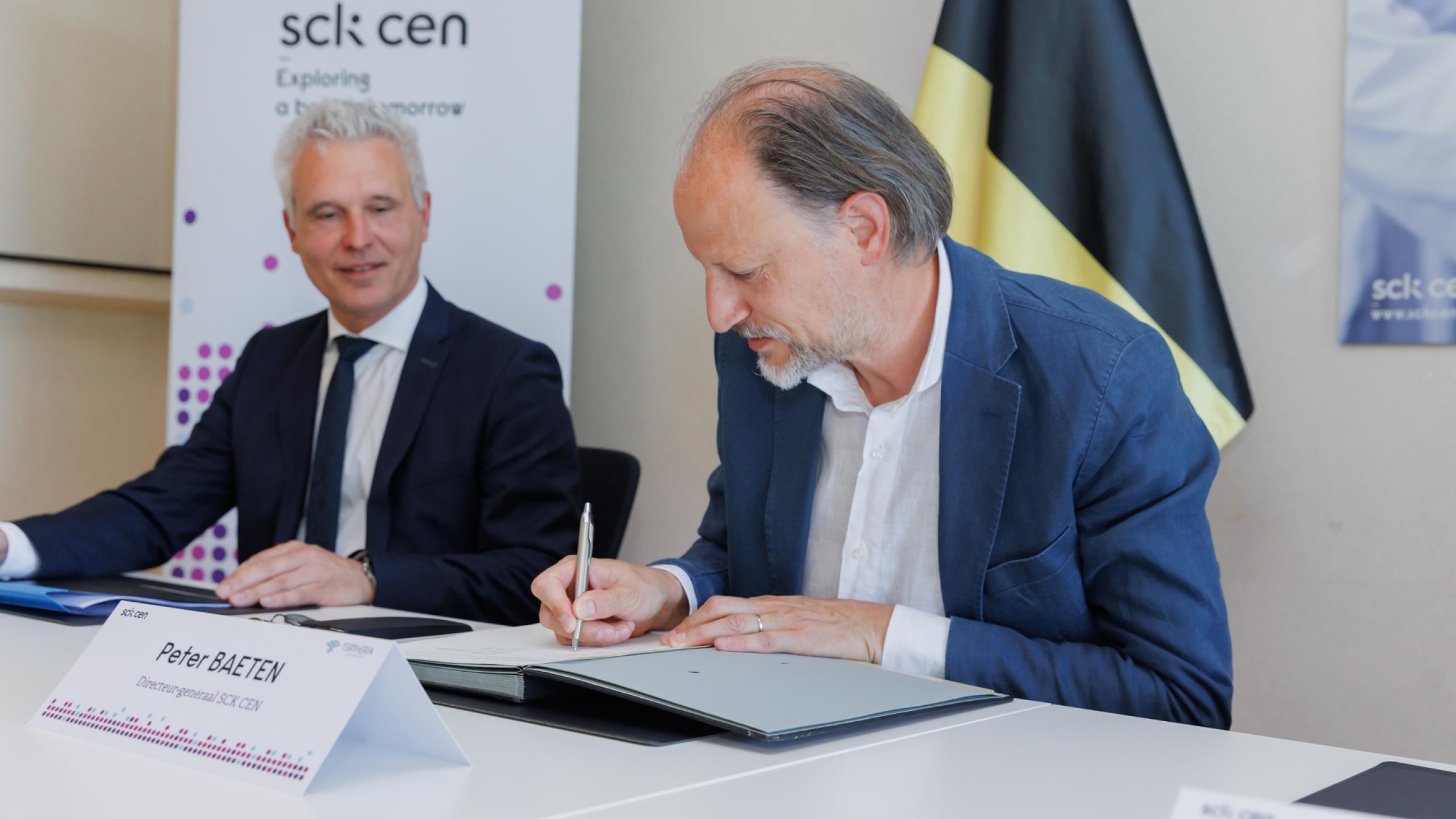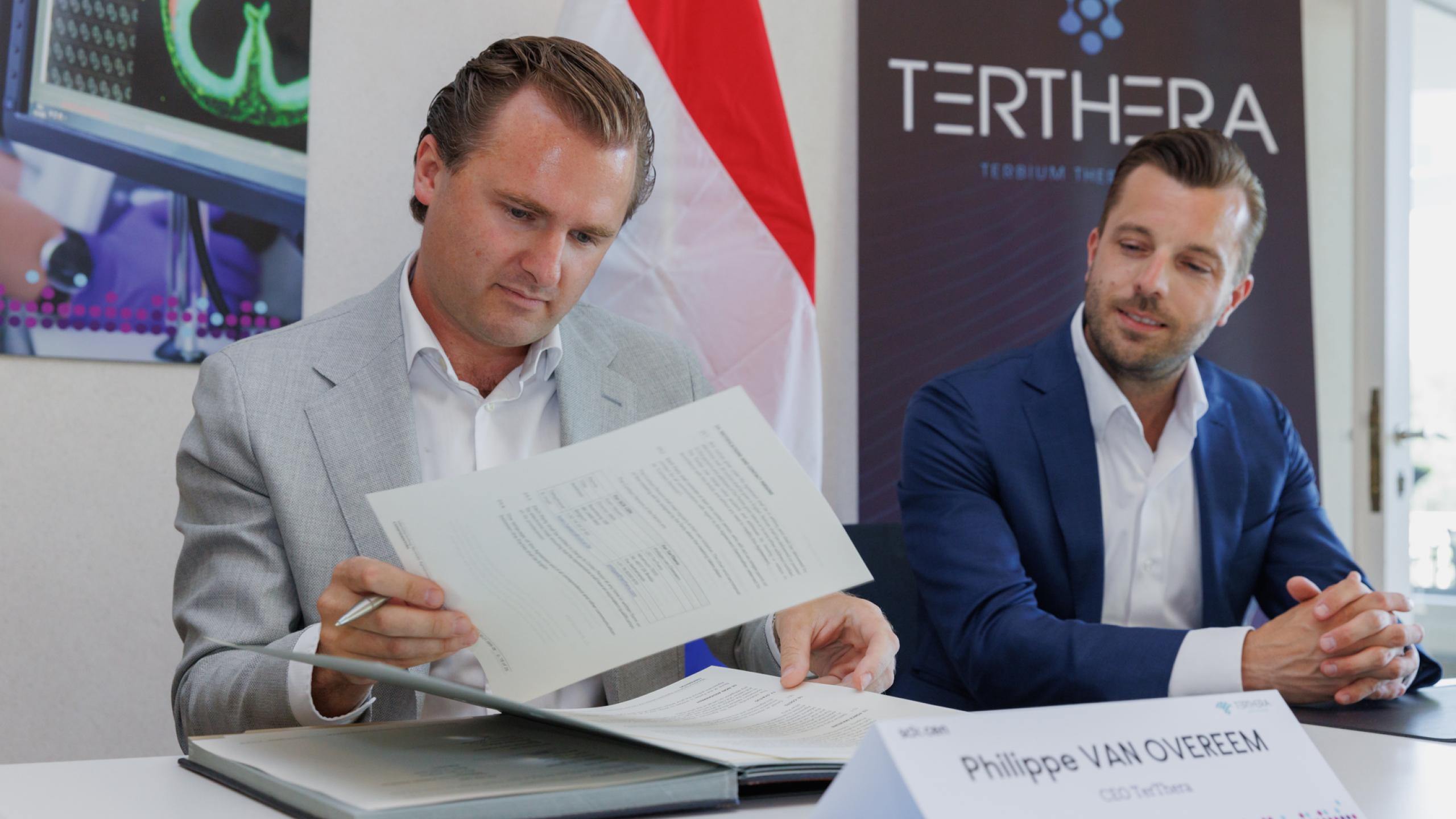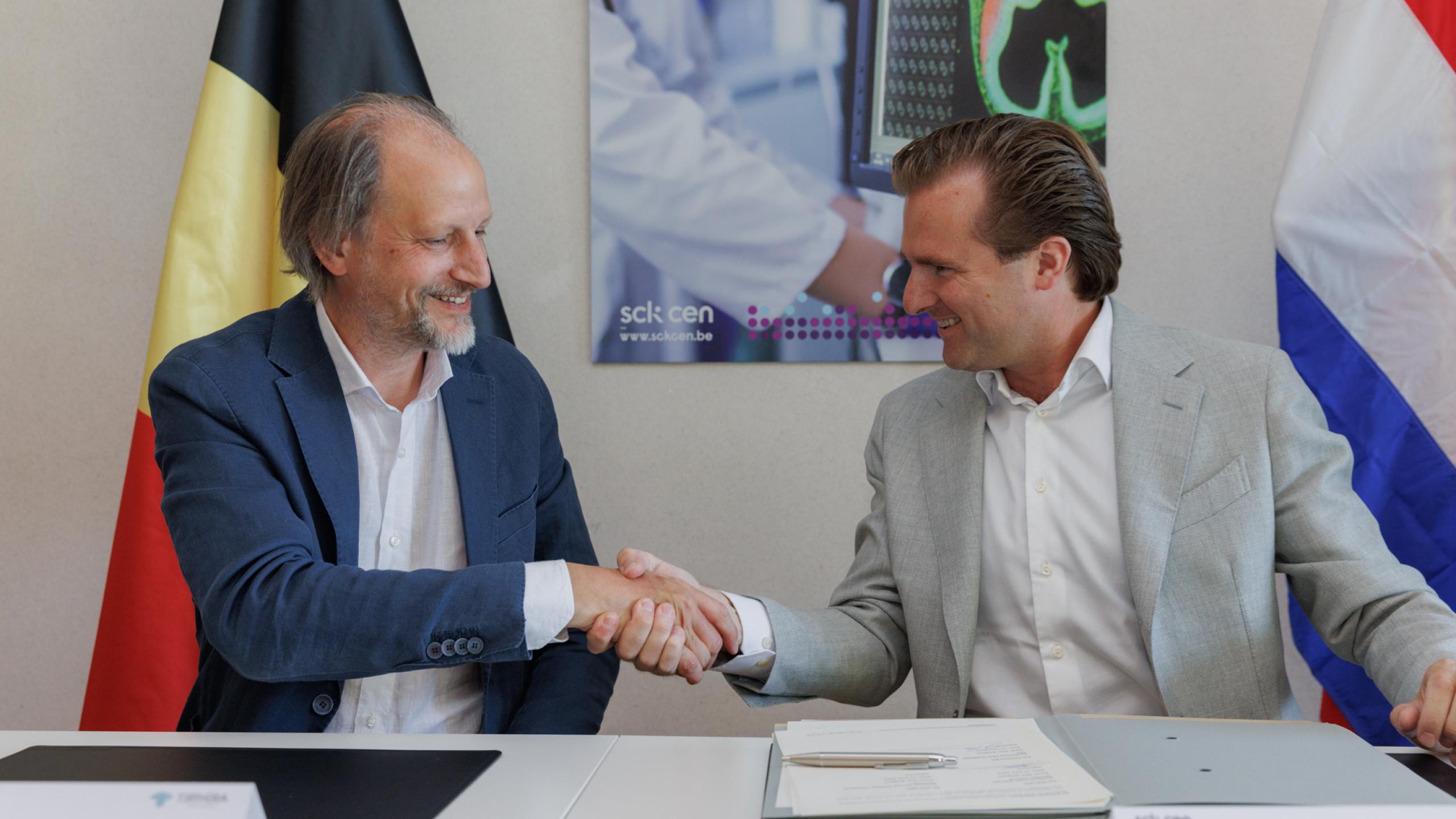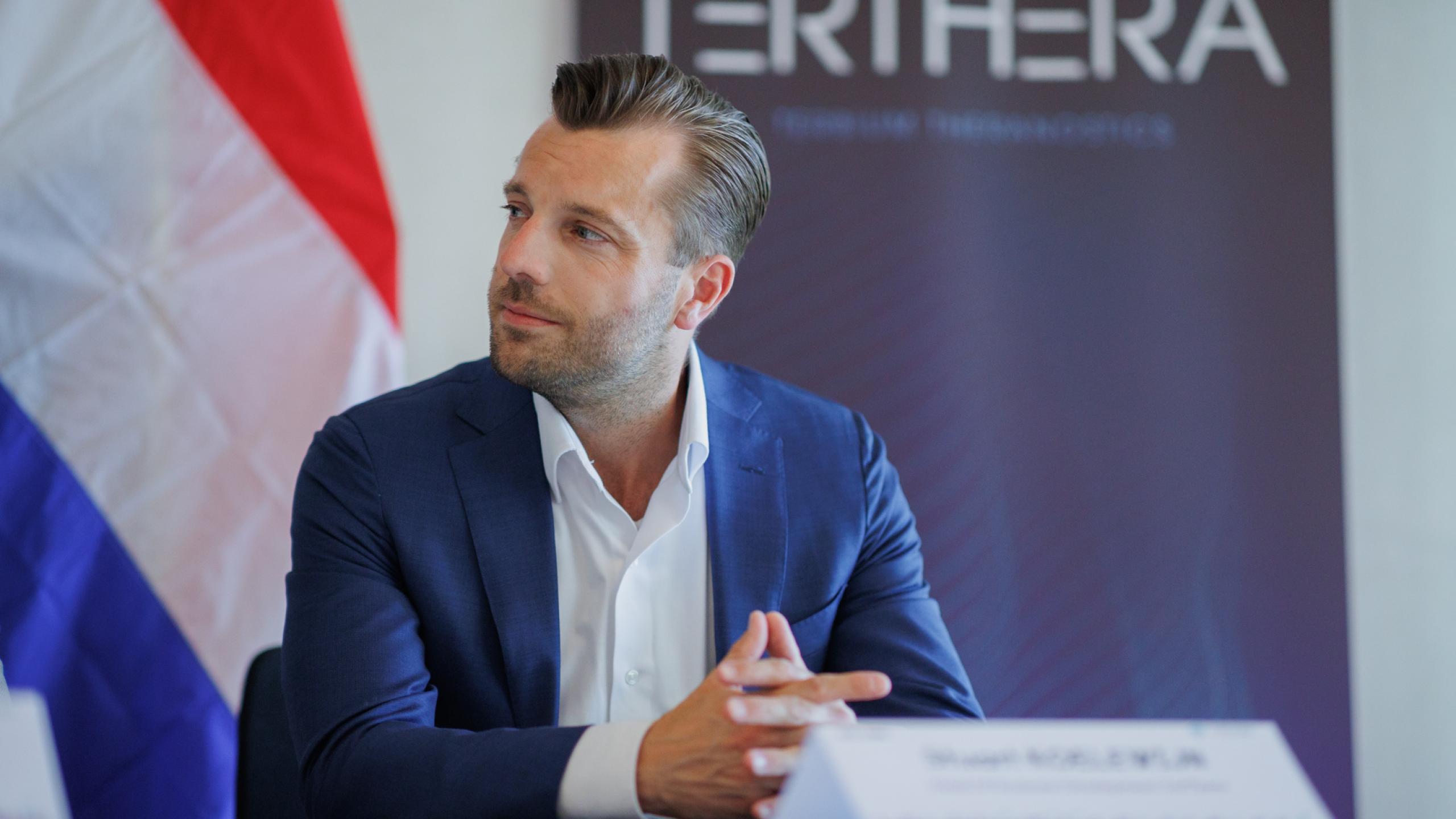The Netherlands and Belgium stand shoulder to shoulder against cancer
Teamwork accelerates development of promising cancer treatment with Terbium-161
Cancer is on the rise worldwide. The Dutch company TerThera and the Belgian nuclear research centre SCK CEN want to stop it in its tracks. In one swift stroke of the hand, they throw everything into the fight against cancer: unique expertise, advanced techniques and uninterrupted access to ... Gadolinium - one of 17 rare earth metals. This is the necessary raw material for Terbium-161, an emerging talent among therapeutic radioisotopes.
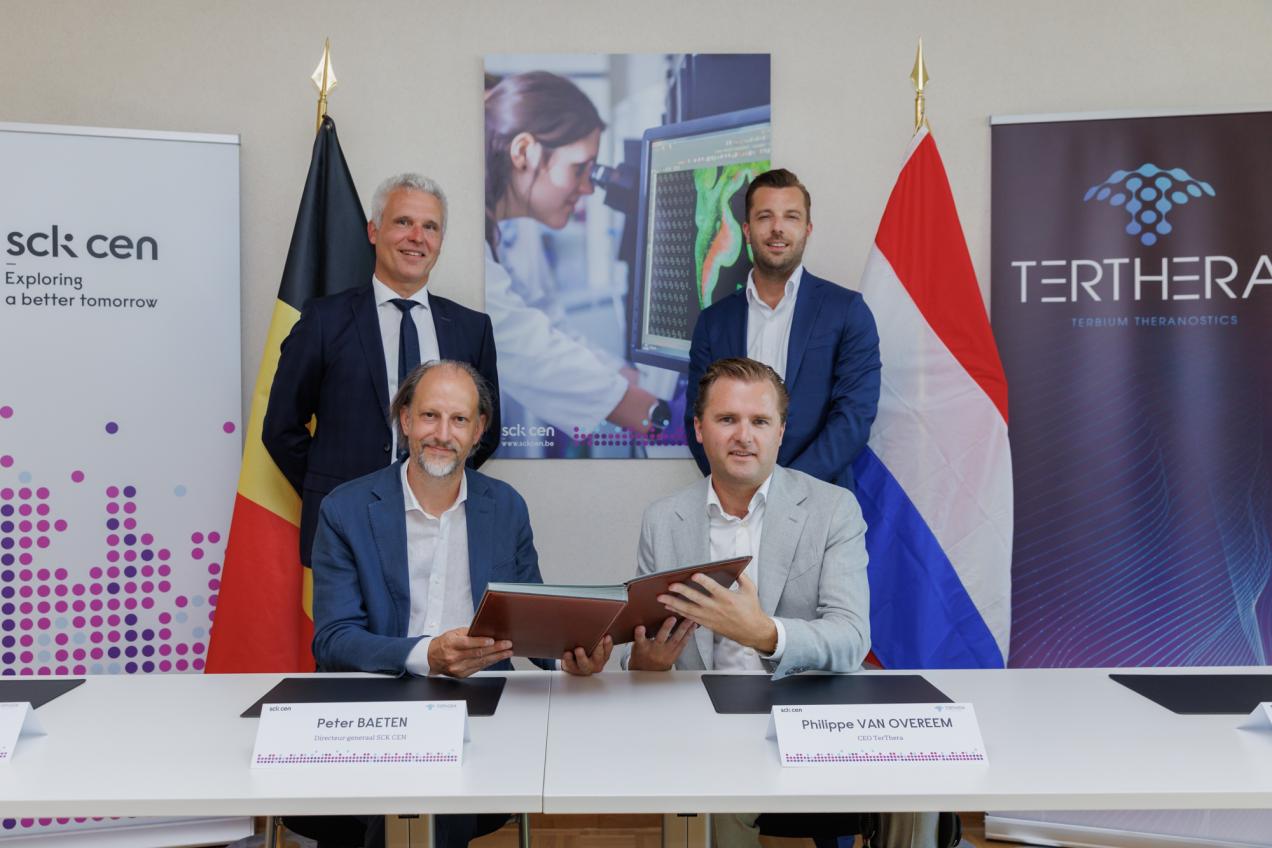
Terbium-161 has been dubbed one of the therapeutic radioisotopes of the future. "Targeted cancer therapies with Terbium-161 are expected to have a higher therapeutic effect. This is due to its special properties," points out Koen Hasaers, Director of Nuclear Medical Applications at SCK CEN. Terbium-161 has the property that when the radioisotope decays, it immediately emits an average of two low-energy Auger electrons per beta particle. Once emitted, those electrons, like alpha particles, do not travel far. That means a higher dose can accumulate - very locally near the cancer cell - per injection. In theory, a higher local dose translates into a higher therapeutic effect, sparing healthy tissue in the process.
"That therapeutic effect needs to be proven. And that requires more (pre)clinical research," continues Philippe van Overeem, CEO of TerThera. Terbium-161 must also be available to be able to conduct that research. This is the shared mission of the Belgian nuclear research centre SCK CEN and the Dutch company TerThera. Together, they will handle the production process of Terbium-161. This is how both partners seek to accelerate the development of that promising cancer treatment. "The more Terbium-161 is available, the more studies can be performed, the faster the radioisotope gets to the patient," he clarifies. That collaboration was officially ratified today in one swift stroke of the hand.
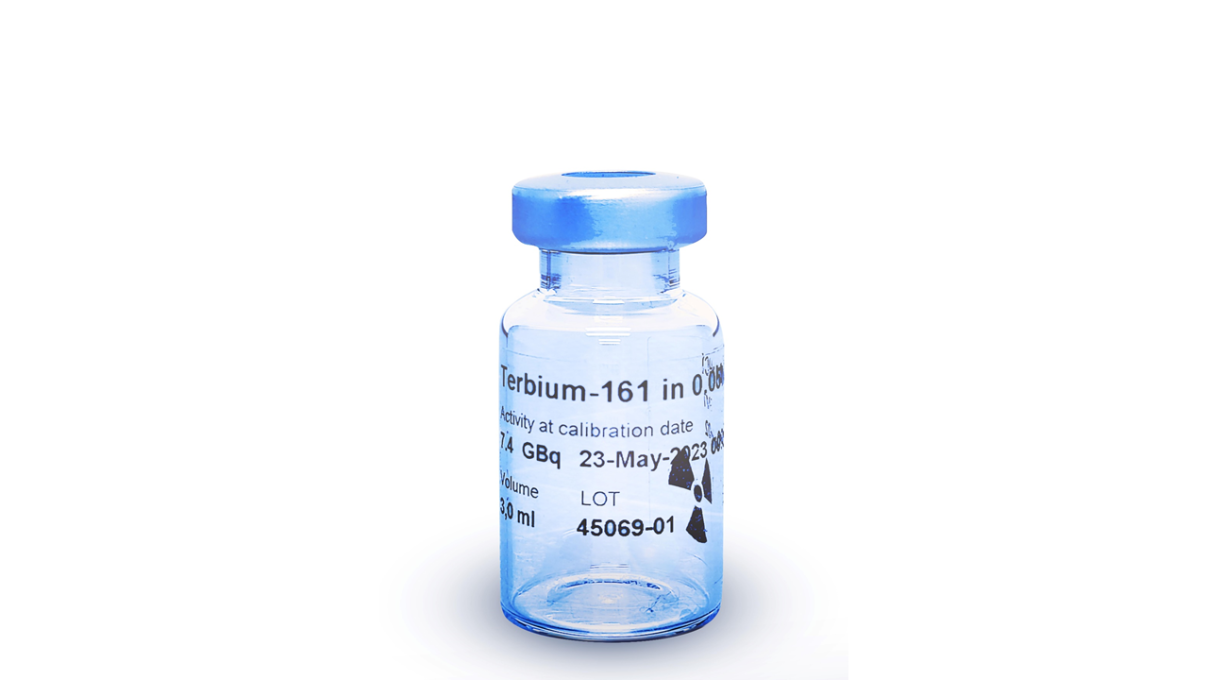
Getting to the cancer patient faster
The production process goes through several stages. Terbium-161 is created by irradiating Gadolinium-160 and separating the desired radioisotope from the irradiated material after irradiation. Gadolinium comes from the series of rare earth metals. The silvery-white, shiny metal is a coveted commodity whose supplies are limited. TerThera has uninterrupted access to that feedstock, while SCK CEN has developed an in-house separation technique to isolate pure Terbium-161. That pure isotope is subsequently linked to a molecule and processed into a radiopharmaceutical for further research.
Global healthcare can rejoice in that agreement. This way, both partners have everything they need to ensure a stable supply of Terbium-161. "Years ago, we jumped onto the therapeutic radioisotopes bandwagon. Bringing promising cancer treatments to patients is our destination. And TerThera's bandwagon is heading in the same direction. We now couple our wagons together to gather speed," clarifies Koen Hasaers (SCK CEN).
Cancer research
And cancer patients benefit from the fact that SCK CEN and TerThera are gathering speed together. "A recent case study showed that in a patient with prostate cancer who had exhausted all avenues of traditional medicine, after one dose of Terbium-161, the tumour volume decreased and metastases disappeared. That is a positive sign, but it requires more research to make that treatment with Terbium-161 successful across the board," said Philippe van Overeem (TerThera). To date, research on cancer treatments with Terbium-161 has been long overdue because of a shortage of the raw material gadolinium-160. The first (pre)clinical study dates back to 1995. After that - until last year - barely 16 new publications followed.
As Terbium-161 becomes more widely available, a series of studies have been initiated. They will provide a better short-term understanding of the therapeutic effect and its optimal use. For example, TerThera supports several initiatives, including fundamental research into the precise workings of radiation within the field of Radiobiology. "It goes without saying that in joining forces, we will give that cancer research a solid boost. We are therefore delighted to be involved," both partners conclude.
Therapeutic radioisotopes: a definition
Therapeutic radioisotopes are an indispensable component of targeted cancer treatments. In this kind of treatment, a carrier molecule delivers a radioisotope very precisely to the cancer cells. Once the carrier molecule is bound to, or absorbed into, the cell, the radioisotope can irradiate the cancer cells without affecting healthy tissue. The cancer cells are damaged, causing them to die off and the tumour itself eventually shrinks.
Related articles
- 25 March '24
 29 February '24
29 February '24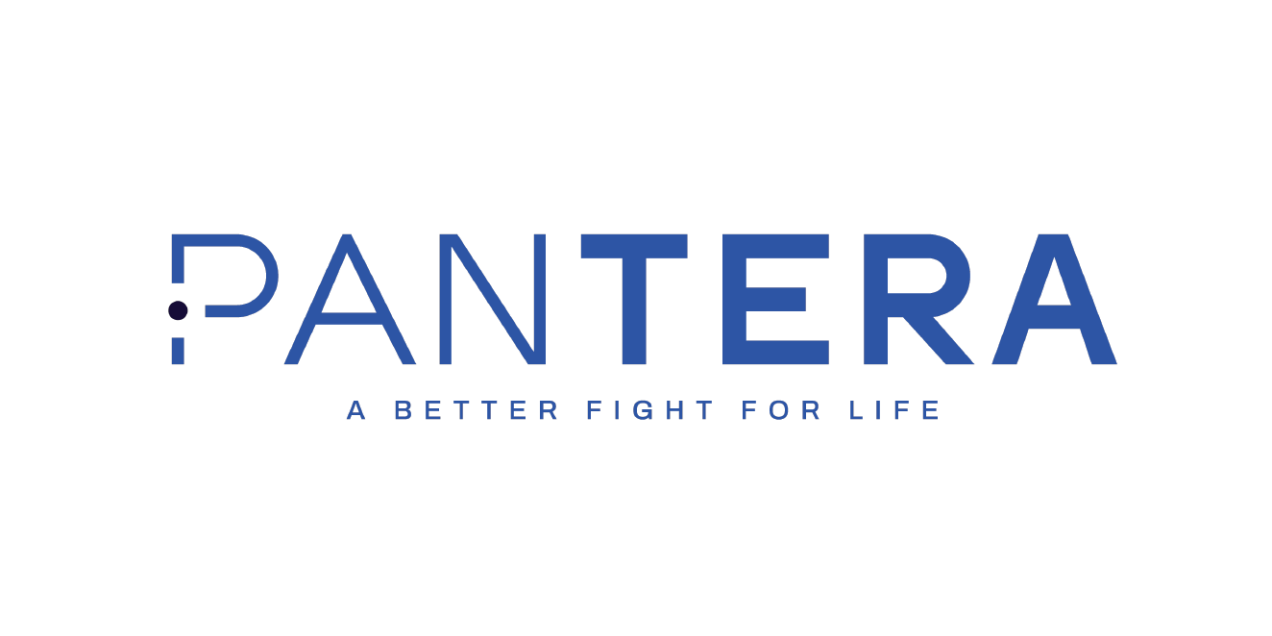 13 February '24
13 February '24
